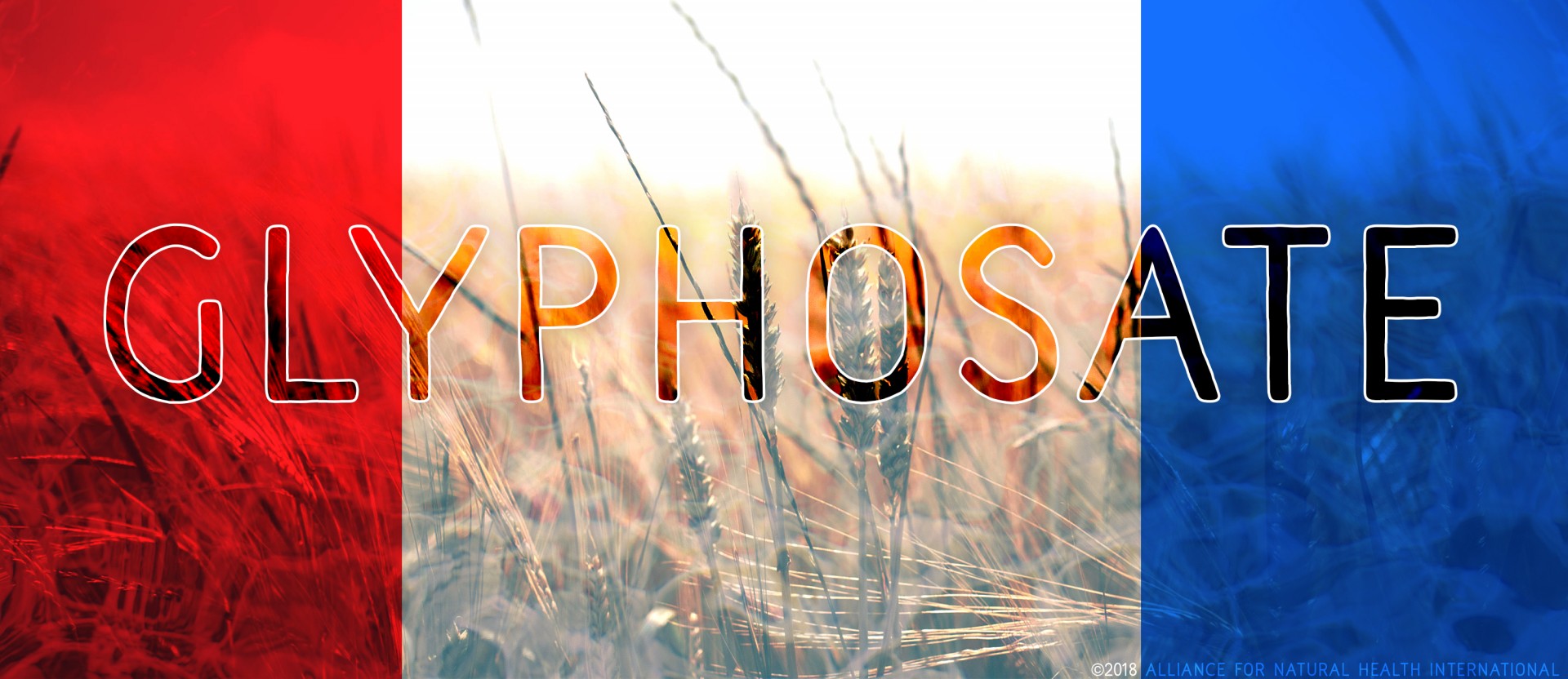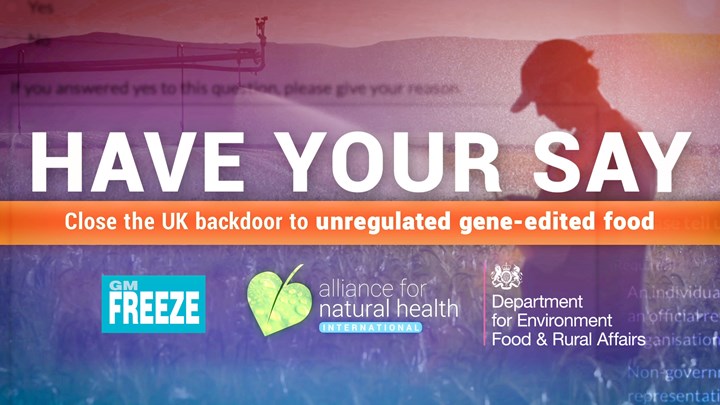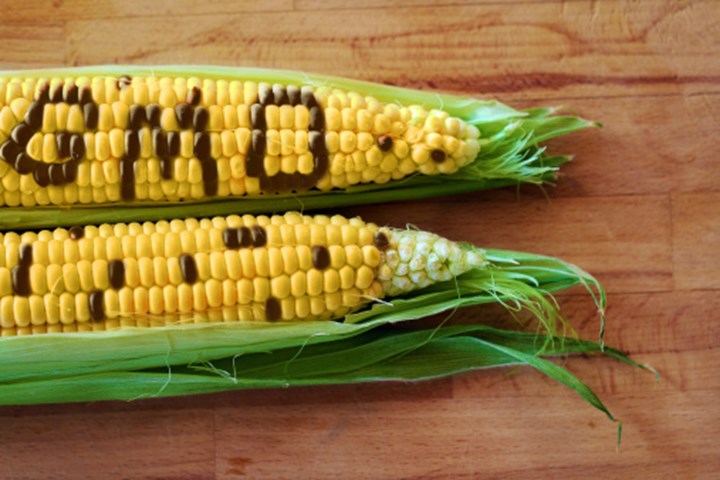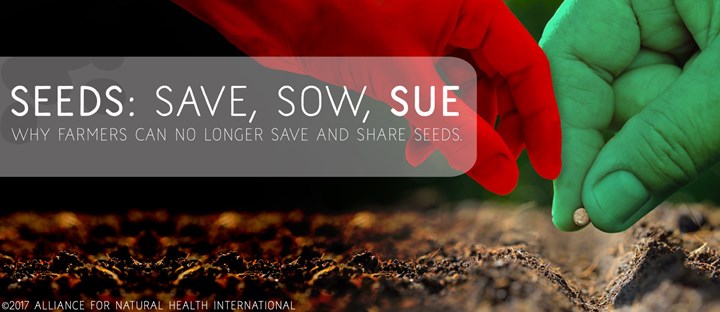Content Sections
ANH-Intl’s Rob Verkerk was interviewed earlier today by the English-language channel of RT News about the world’s number 1, and highly controversial herbicide, glyphosate (including Monsanto’s Roundup).
The impetus for the interview was a group of French farmers who are getting increasingly vocal about President Macron’s plan, announced in November 2017, to ban the herbicide “within 3 years”. Could they have been put up to it by Monsanto and the pro-glyphosate agrochemical and GMO industry? Who knows, but given past performance, it’s rather likely.
The European Commission, taking particular account of German chancellor Merkel’s support for glyphosate, agreed last year to extend the license another 5 years. In the vote, 18 countries opted in favour of the extension, with only 9 against. This latter group included France, Belgium, Austria, Italy, Greece, Cyprus, Luxembourg, Malta, and Croatia.
The anti-glyphosate sentiment of Macron is echoed widely by the French public, as well as by the people and governments of numerous other countries.
Baum, Hedlund, Aristei & Goldman, one of the two US law firms representing Dewayne “Lee” Johnson who filed a claim against Monsanto in 2016 after contracting non-Hodgkins lymphoma, summarise some of the countries around the world which have already, or plan to, ban or restrict glyphosate-containing herbicides:
Argentina
Australia
Belgium
Bermuda
Brazil
Canada
Colombia
Denmark
El Salvador
England
France
Germany
Greece
Italy
Luxembourg
Malta
Netherlands
New Zealand
Portugal
Scotland
Slovenia
Spain
Sri Lanka
Sweden
Switzerland
[For details on the types of restrictions in each country, click here.]
In August this year, a San Francisco jury awarded Monsanto to pay US$289.2 million in damages to Johnson. Last Monday, a San Francisco judge slashed the pay-out down to $78 million. But at least the all-important successful claim by Johnson wasn’t overturned.
Reuters, presumably with the backing of Monsanto and pro-glyphosate interests, has been on the offensive against IARC’s 2015 classification of glyphosate as a Group 2A ‘probable human carcinogen’. But in response, IARC has done a valiant, if insufficiently reported, job rebutting the attacks.
It’s not just about cancer
While the IARC’s 2015 classification along with Lee Johnson’s case in California has certainly put a lot of the focus on cancer, we shouldn’t ignore the other emerging research showing harmful effects of glyphosate-containing herbicides. This includes, for example, their endocrine-disrupting effects, as well as potential effects on the nervous system and mitochondria, the latter demonstrated in animal models. Challenges in gaining independent, non-industry funding also has to be factored in, as well as separating the effects of the active ingredient glyphosate from so-called (and clearly not) ‘inert’ ingredients. On top of that is the sheer volume of glyphosate-containing herbicide being used, estimated to be around 6.1 billion kilograms applied worldwide over the last decade. Is it any surprise residues have been found in Unilever’s Ben & Jerry’s ice cream, something the company pledged to resolve?
What’s the answer?
This is actually one of the key questions posed by RT to Rob Verkerk, who has himself a deep background in sustainable agriculture. Cutting to the chase, he told RT:
- You can substitute for different herbicides, but some of them, like atrazine (banned in the EU) are even more persistent or, like glufosinate ammonium, may be as bad
- You can use a lot less glyphosate than is currently used, or
- You can fundamentally change agronomic practices and avoid using glyphosate or other herbicides altogether. As Rob told RT, we now face a situation where almost all non-organic farmers in practice today have been raised in the post-glyphosate era (glyphosate was introduced commercially in 1974). Conventional farmers would do well to learn from their organic peers, who have never been able to use glyphosate or other synthetic pesticides. They could take a lot more responsibility over their agronomic practices and engage in farmer participatory research that has been responsible for many breakthroughs among smallholder farming communities.
Pesticide-dependency is like pharmaceutical dependency. It isn’t sustainable and in sensitive biological systems it will cause disruption and damage.
Farmers who want to make difference should stop trying to justify a system that isn’t sustainable and instead look at what they might be able to do that’s consistent with the biological and ecological systems on which they are dependent.
Agrihackers urgently needed
Biohacker farmers, or ‘agrihackers’, are what we need, especially in France! There are already some out there. The longer President Macron maintains his position against glyphosate, the more likely it is that a new breed of solution-based, agrihackers will show why over 40 years of glyphosate use and Monsanto-fostered dependence, especially following the advent of GM crops, was one of modern agriculture’s major and unforgettable mistakes.
Note:
Rob Verkerk’s interview with RT is likely to shown live on RT.com from 8 am GMT tomorrow, on 25th October. We’ll push links out on social media once we know it’s being broadcast.








Comments
your voice counts
24 October 2018 at 9:13 pm
The best hack for agriculture is permaculture.
11 November 2018 at 1:13 pm
we must rid the world of glysophate, it is killing us all. even Bigelow tea has it in it for god sakes. and they are still allowed to sell it that way. it is in so much. it must be stopped.
Your voice counts
We welcome your comments and are very interested in your point of view, but we ask that you keep them relevant to the article, that they be civil and without commercial links. All comments are moderated prior to being published. We reserve the right to edit or not publish comments that we consider abusive or offensive.
There is extra content here from a third party provider. You will be unable to see this content unless you agree to allow Content Cookies. Cookie Preferences